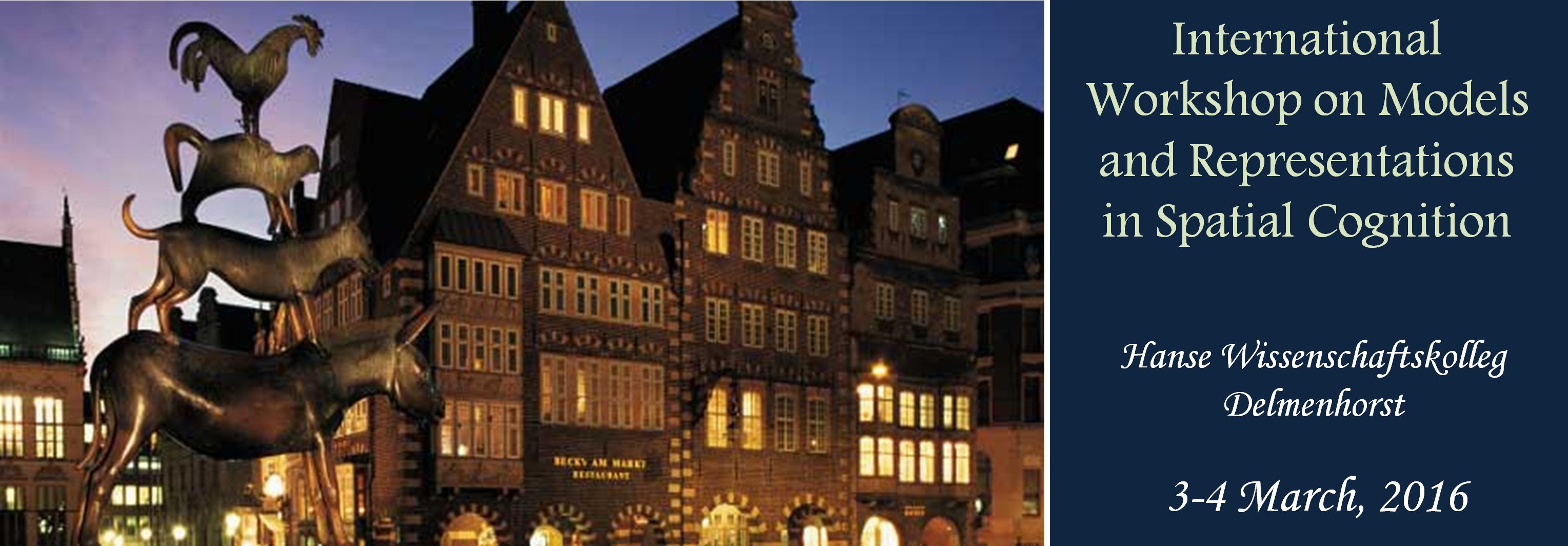International Workshop on Models and Representations in Spatial Cognition
Why this workshop?
To bring together researchers to discuss current understanding of spatial representations and processes at various scales, and modeling techniques that help to characterize them. We also plan to repeat this workshop in the future and extend it as an annual conference. The goal is to establish a community of researchers to advance our understanding in spatial representations and models, and to investigate how they can be useful for various applications.
What are they? Why do we care?
Achieving our goals in everyday life often involves spatial cognition. Spatial problems are so ubiquitous and we humans and many other animals deal with them so naturally that it is easy to overlook just how pervasive the necessity for spatial cognition is. For example, grasping an object requires to represent the spatial location of the object and the effector (usually one's hand) and to plan an appropriate movement trajectory through space. Similarly, walking from your bedroom to the bathroom or traveling from your home to a conference location overseas comprise route planning and locomotion through space on various scales. Spatial cognition is also crucially involved in communicating about spatial state of affairs such as, for example, giving directions or telling another person where certain objects can be found (e.g., “The keys are on the sideboard.”). Notably, the necessity of spatial cognition does not only arise in spatial domains but extends to non-spatial, abstract domains. Emotions, for example, are often expressed metaphorically by referring to spatial relations: “I'm feeling low.”, ``I'm in love.'', ``I'm not over it yet.''. Similarly, our understanding of time seems to be largely grounded in our understanding of space.
Accordingly, spatial cognition is a crucial human ability. But what enables people to so proficiently perceive, represent, and process spatial information? Which information is represented? How is this information represented? What is the nature of the processes that build, manipulate, and extract information from these representations?
This workshop brings together researchers to address these and related questions that are at the core of our understanding of spatial cognition. A particular emphasis will be on the question of how and to what extent computational models can help to shed further light onto the nature of spatial representations.
